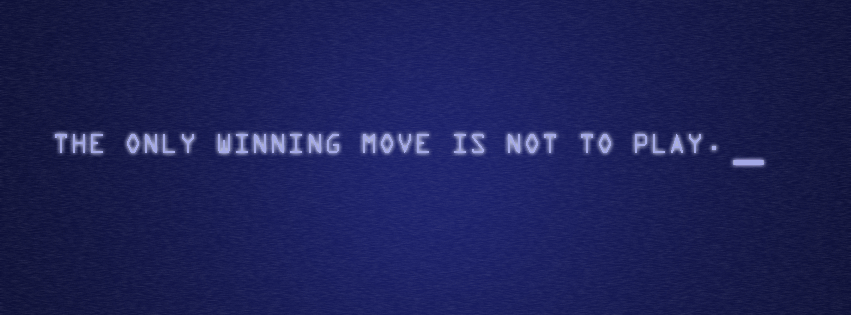
Welcome to my new series where I look back at 20+ years of playing games competitively and share with you what I’ve learned, from the grand successes to the embarrassing failures. From game theory to self-improvement, this series will focus on how you can improve as a player and learn from your mistakes.
My name is Michael Clair, and years ago I wrote a column for Star City Games on how to become a better Magic: the Gathering competitor, talking about my first-hand experiences trying to make it to the Pro Tour.
Recently I’ve become an avid Flesh and Blood tournament player (currently ranked 23rd in XP in the US), and now as then, my goal is to prepare players for the top tables of a competitive tournament, where stakes are high and the pressure is on. Anyone can win round 1 on a Saturday morning. It takes skill, commitment and mental fortitude to win that final win-and-in, and I hope this series helps you do that.
In a tournament setting, we have one job: to win. I believe that to do that, we must optimize the things we can control and accept the things we can’t.
Today we will talk about the types of mistakes we make as tournament players, and more importantly, how to deal with them both in-game and afterwards.
Blunders
Mistakes made by accident, such as miscounting or forgetting something.
I recently played Viserai in an online Blitz tournament, and was up on Dorinthea 17-11 going into the mid- to late-game.
Dorinthea had an absolute blowout turn, chaining Steelblade Supremacy, Ironsong Determination, and Warrior’s Valor, for a Dawnblade swing of 9. I had a good hand and a plan to close this game, so I took the hit; and when he activated his Braveforge Bracers and swung again for 7, I took that too, dropping to 1 health.




Coming into my turn with 1 Runechant, I pitched a blue and activated Bloodsheath Skeleta, paying 1 for a red Oath of the Arknight and another 2 for Arknight Ascendancy.
My opponent took the 2 Runechants, then considered the game state. I was holding two cards and he had already seen a Pummel in my deck. Eventually, he equipment blocked for 1. As he'd expected, I bolstered my attack to 11 with a Pummel from hand. With his health sitting at 9, I had a strong chance of finishing him off here.




He nodded and played a Sigil of Solice, intent on healing back out of range of lethal.
At that point I reminded him of my Reaping Blade, and he paused before stoically admitting he'd totally missed it. He thought a bit more, played his Springboard Somersault from hand, and died to exactly 9 damage.
=====
In my opinion, these are the mistakes that you learn the least from, while simultaneously they have the strongest affect on you in the moment. Let’s break down why.
Mistakes like this are embarrassing. They are often avoidable, and there’s usually no good reason you made it. In this instance, if my opponent had blocked from hand for 3- potentially losing a killing card- he would have at least ensured his survival.
Unfortunately, these kinds of mistakes teach you very little- only, perhaps, providing insight into your current mental state. Unfortunately, if you’re distracted or overtired, there’s not much you can do about it, except maybe grab a coffee and refocus. In this case, my opponent informed me it was almost 5 am where he was, and suddenly his gaff made a lot more sense.
On the other hand, if you make a mistake based on lack of game knowledge, it’s easy to feel embarrassed- but it would instead serve as a teachable moment. Tournaments are a great place to learn, especially about yourself.
Errors in Judgment
Making the wrong strategic call.
This is a great example of a mistake that you can learn from- albeit, typically after the match. Errors in judgment are the type of “mistakes” that you definitely want to discuss with friends and teammates if you can, because if it was based on any kind of logic, you want to figure out if that logic was flawed, if you missed an opportunity to do something better, or if you just got unlucky.
This is also one of the mistake types that can be invisible, especially to a frustrated player, or a player that isn’t ready to level up his/her game. Often, errors in judgment hide behind shallow attribution to luck. “He got lucky, he top decked that card right before I killed him!”
=====
Let's look at another example. As Viserai, I have two blues in hand against a Wizard. The Wizard is at 2, I’m at 11 and I have a few Runechants (let’s say 5). My play was pitch blue, attack with Dread Triptych plus 5 Runechants, and finish Kano off.
I’m sure you can imagine what happened next.
In a recent FaB Gauntlet stream, FiddyShades noted that 11 is an interesting life breakpoint for Wizard to target. A blue pitch + Storm Striders activation + Stir the Aetherwinds (red), blue pitch, Crucible + Metacarpus Node + yellow or blue pitch for Forked Lightning from arsenal is 14, minus 3 nullrune -> 11. (And this is why Wizard is so complex!)





In this case my opponent didn’t even need it; he went Striders -> Stir -> Chain Lightning, take 6, flip Voltic for lethal. I die like an idiot, looking at my two Blue cards on the table.
If I had played it safe and pitched a blue to attack with my weapon for 5 Runechants + 3 physical, would have made it much harder for my opponent to successfully finish me off, or forced him to block heavily and keep the game going. Overall, I should have thought about playing defensively against such a dangerous hero, especially with his boots up.
Misses
Not noticing a line, or a potential counterplay.
Most of these misses are truly that: missed opportunities. In fact, you may not even realize you did it. This is where studying your own play comes in (more on that in a future article) and talking about the game afterwards with friends, or even (perhaps especially) your opponent.
As a follow-up to my prior article, your opponent can actually be a terrific source of learning after a game. If you have developed a rapport with them, strike up a conversation at the end of the game. Talk about your play, what you were thinking, and ask them their thoughts on the same. Often they will talk about how scared they were of X happening, or how they wanted you to make the decision you did so they could do Y. Either way, you learn a lot by seeing the other side of the game.
You may find that after the game your opponent doesn’t want to chat. That’s fine, never push, especially if they lost. But on the flip side, if YOU lost, chin up! And get learning. In my experience a victorious opponent loves to talk about it.
5 Takeaways to Level Up Your Game
- Focus on what you can control.
- Let go of what you can't.
- Remember that an early game mistake usually ends up being more significant to the player that made it than the player it favored.
- Do. Not. Tilt. Take a deep breath, collect yourself, and refocus.
- After each game, reflect and examine what you've learned.
Remember, even an 0-2 drop can lead to valuable insights into your game, your tournament preparedness, or your mental state.
Final thoughts on this: Always Be Improving. My therapist told me years ago that, “Therapy is like going to the gym. If you want to look great on Saturday, you go to the gym during the week.” So every win, loss, tournament, and testing session should be the same for you. Practice like it matters, because eventually, it will.
If you are distracted, overtired, frustrated, or already tilted before a match or tournament even begins, ask yourself this important question: “Am I ready to play?”
Entering into a game is a decision totally in your control, and you can always opt not to. It’s rare, but sometimes…

Until next time, may you own your mistakes, and optimize your play in the process.



